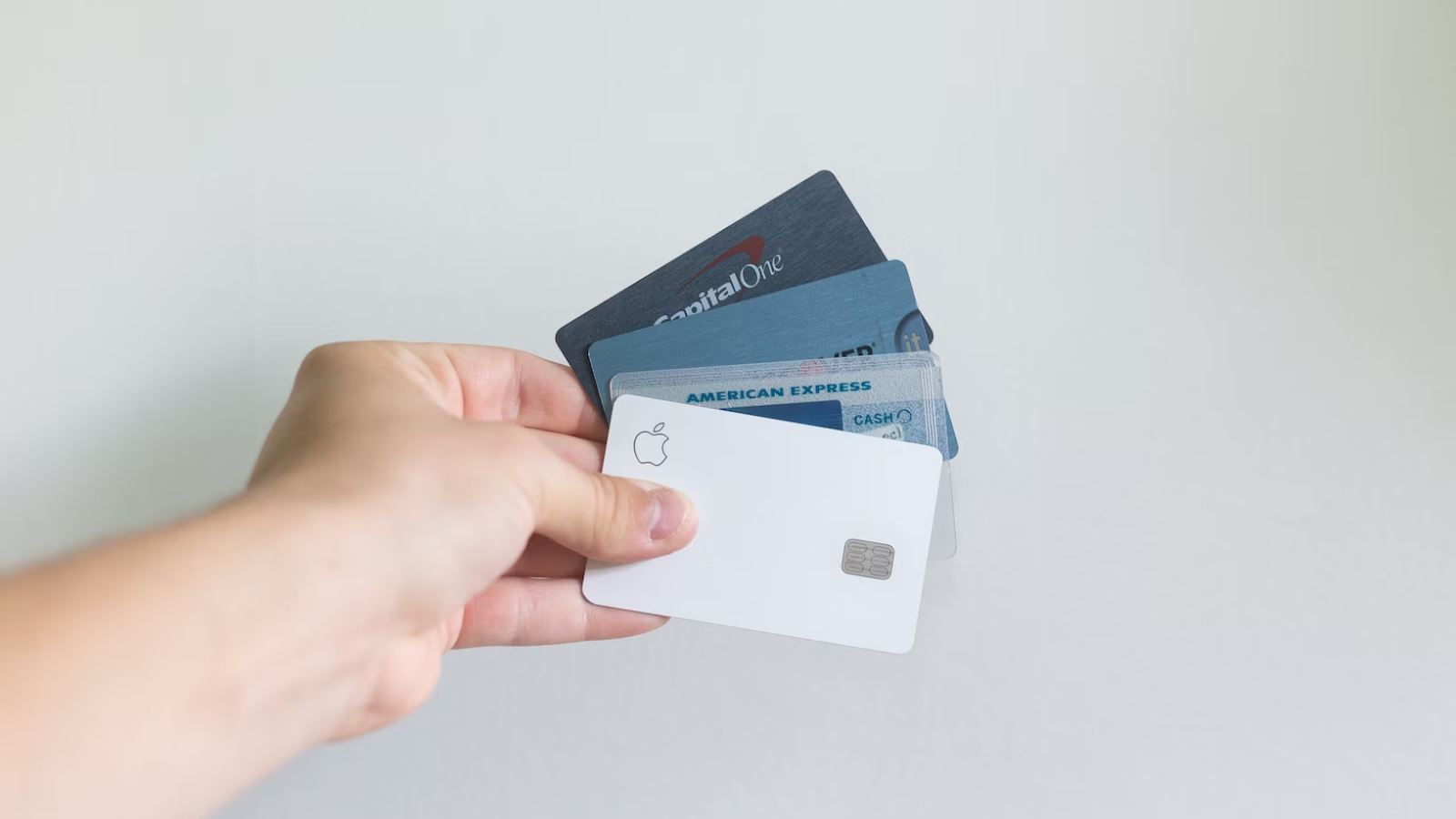You are now leaving the Bright website and entering a third-party website. Bright has no control over the content, products, or services offered, nor the security or privacy of information transmitted to others via their website. We recommend that you review the privacy policy of the site you are entering. Bright does not guarantee or endorse the products, information, or recommendations provided on any third-party website.
Introduction
A lot of people nowadays see credit cards as a useful financial device. Credit card types vary depending on whether you want debt consolidation loans, to build credit, or to earn rewards points and cash back. Choosing the right credit card from so many options may seem difficult, but the process is quite simple. Here is a short guide to help you choose a credit card that matches your lifestyle and needs. Let's dive in!

Understanding the Basics of Credit Cards
Understanding the basic factors of credit cards before selecting the right credit card is crucial. This aspect will help you make an informed decision.
What is a Credit Card?
A credit card is a financial instrument that lets you borrow up to a maximum borrowing limit. With this loaned money, you may make different purchases and return them monthly. You will be required to clear interest charges if you fail to pay the balance in full.[1]
The Importance of Good Credit
The type of your credit rating has a high impact on the potential credit cards. A good credit score will open numerous doors for you, with many benefits attached. Therefore, knowing your score is very important before deciding on the best one. Several websites offer a free check on one’s credit score.[2]
Are you facing credit score issues? Build your credit score with Bright Money.
Types of Credit Cards
There are different types of credit cards, each designed to meet unique financial demands. Here are several examples:

- Rewards Credit Cards: These cards offer rewards in the form of cashback, points, or miles for your spending.
- Travel Credit Cards: Ideal for frequent travelers, these cards offer travel-specific perks such as airline miles and travel insurance.
- Student Credit Cards: Geared toward college students, these cards typically have lower credit limits and provide an opportunity to build credit.
- Secured Credit Cards: These cards require a security deposit and are an excellent option for those with poor or no credit history.
- Balance Transfer Credit Cards: If you want to consolidate your debts, these cards offer low or 0% interest rates for a limited period on transferred balances.
Read More About: How do credit card balance transfers work?
Now that you know the basics of credit cards, let's look more closely at the factors you should consider when selecting the best credit card.[2]
Key Factors to Consider When Choosing a Credit Card
1. Your Financial Goals:
Identifying your financial objectives is the first step toward selecting the ideal credit card. With your new card, what are your goals? Your goals will guide your decision, whether it is to consolidate debt, develop credit, or receive incentives.
2. Interest Rates:
Pay particular attention to the credit card's annual percentage rate (APR). This is the interest rate that you will be charged if you carry a balance from month to month. Low APR credit cards are excellent if you want to carry a burden, but remember that paying off your balance in full each month can save you money and avoid paying interest.
Sign up with Bright Money and understand the various credit options available to you.
3. Annual Fees:
One typical aspect of credit cards is an annual fee. Determining whether the card's benefits outweigh the cost is crucial because these expenses could vary greatly. Rewards cards, in particular, may offer enough benefits to offset the annual fee.
4. Rewards and Perks:
If you're interested in earning rewards, pay attention to the type of rewards the card offers. Common rewards include cashback, travel miles, and points. Look for rewards that align with your spending habits and lifestyle. Additionally, check for other perks like travel insurance, extended warranties, and purchase protection.
Read More About: 7 tips to make your credit card work for you
5. Credit Score Requirements:
As discussed before, your credit score plays a big role in determining which credit cards you can apply for. Ensure you understand the minimum credit score needed for the cards you are considering. Applying for a credit card that corresponds with your credit score may increase your chances of getting approved for one.
6. Introductory Offers:
Many credit cards come with introductory deals, including 0% APR for a set amount of time on purchases or debt transfers. These may be helpful, particularly if you want to make a big purchase or move high-interest debt to a new card.
7. Fees and Penalties:
Read the fine print to understand any additional fees or penalties associated with the credit card. This includes fees for late payments, cash advances, and foreign transactions.
Paying high interest on your credit card bills? Sign up with Bright Money and explore your options
8. Credit Limit:
Consider the credit limit that the card offers. It should be sufficient for your needs and spending habits. To avoid hurting your credit score, avoid using all of your available credit limit.
9. Credit Card Issuer:
The issuing bank or financial institution matters. Choose a reputable issuer with good customer service and a track record of responsible lending practices.
10. Payment Flexibility:
Check the grace period for making payments. Some cards offer a long-term grace period, allowing you more time to make payments without incurring interest.
11. Customer Reviews:
Before finalizing your choice, consider reading customer reviews and feedback online. This can provide valuable insights into the card's actual benefits and drawbacks.[3]
Common Mistakes to Avoid
There are a few frequent mistakes that you should avoid while selecting the best credit card:
1. Ignoring Your Credit Score:
Your credit score mostly determines your eligibility for various kinds of credit cards. Do not apply for cards with higher credit scores since this can lead to rejection and worsen your credit.
2. Overlooking the Fine Print:
Some credit card agreements are long sentences with hard-to-understand legal language. However, one must be careful to understand everything about the charges that come together with this card, as well as the other fees and clauses.
3. Applying for Too Many Cards at Once:
Your credit score may suffer if you apply for too many credit cards in a short period of time. Each application generates a hard inquiry, which can lower your credit score. Be selective and apply for the cards that align with your financial goals.
Wondering how to manage your credit score? Sign up with Bright Money.
4. Not Paying Attention to Fees:
An annual charge, late payment fines, and other expenses might add up. Ensure the fees associated with the card are reasonable and in line with its benefits.
5. Focusing Solely on Rewards:
While rewards are appealing, they shouldn't be the sole factor in your decision. Ensure the card's other terms and features meet your needs and financial goals.[4]
Conclusion
When choosing the best credit card, you should consider your goals, credit score, and spending habits. If you know the crucial information and avoid common mistakes, you may make an informed decision supporting your financial objectives. Remember that a credit card is a useful tool that may help you build credit, get rewards, and accomplish your financial goals if you use it responsibly.
Remember to read the tiny print, consider your options, and check your credit score. Additionally, you might want to download the Bright Money app if you're searching for a practical approach to handling your credit and money. It's an important resource that may assist you in getting the most out of your credit cards and realizing your financial goals.
Remember that selecting the best credit card is essential for efficient money management. When you utilize credit cards responsibly and make an informed selection, the benefits will accrue.
Reference
- https://www.investopedia.com/terms/c/creditcard.asp
- https://www.bankrate.com/finance/credit-cards/how-to-choose-your-next-credit-card/#pick
- https://www.citizensadvice.org.uk/debt-and-money/borrowing-money/credit-cards/choosing-and-applying-for-a-credit-card/
- https://www.nerdwallet.com/article/credit-cards/how-to-pick-the-best-credit-card-for-you-4-easy-steps
FAQs
1. How can I pick an appropriate credit card?
- Identify your need.
- Determine the kind of credit card you require.
- Narrow your choices by raising the appropriate queries.
- Apply for the credit card that provides you with the best value overall.
2. What to avoid when choosing a credit card?
Do Not Take These 7 Steps How to Select a Credit Card
- Selecting rewards that you don't need.
- Failing to read the supplementary fine print.
- Being was surprised by the transfer costs.
- Getting caught by budget-busting interest rates.
- Assuming there won't be a change to the introductory rate.
- Underestimating the amount of credit you require.
3. What are some major types of credit cards?
Here are some major types of credit cards:
- Rewards credit cards
- Student credit cards
- Travel credit cards
- Secured credit cards
- Balance Transfer credit cards
4. What is a good credit score to get a credit card?
A credit score of 750 or above is considered a good credit score to get a credit score.



